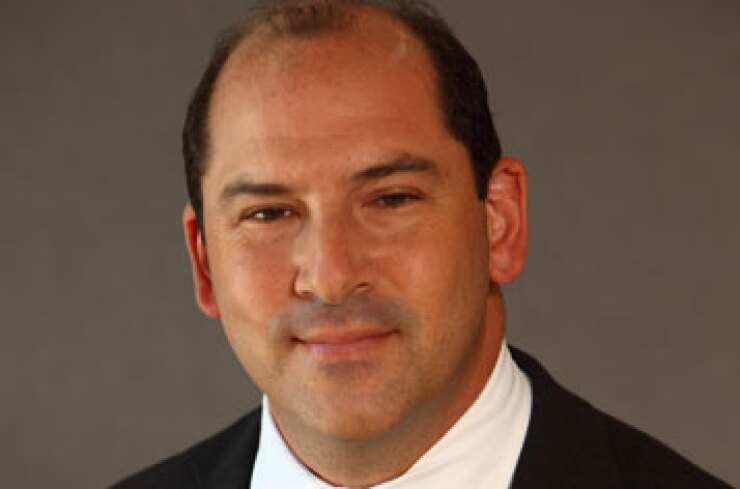
WASHINGTON — A group has developed a model document that will standardize the information that investors provide to dealers to affirm they are sophisticated municipal market professionals that need less regulatory protection than retail investors.
The document was written by the Securities Industry and Financial Markets Association to resolve the concerns of some dealer about how they would get more detailed information from investors that are SMMPs to comply with best execution and other Municipal Securities Rulemaking Board rules.
"The SMMP modified dealer obligations cover more than just assessing suitability for institutional customers," said SIFMA managing director and associate general counsel David Cohen. "They now include suitability, time of trade disclosure, best execution, and pricing obligations for certain agency transactions."
Cohen said SIFMA chose Tuesday to release the model document because April 7 is exactly eight months from Dec. 7 when, it will be needed to comply with the amendments the Municipal Securities Rulemaking Board made to its Rule D-15 on SMMPs to make the affirmations more expansive.
The amendments require institutional investors or individuals with assets of at least $50 million to provide to dealers more detailed affirmations that they do not need extra protections under the MSRB's best execution and other rules. The best execution rule, for example, does not apply to SMMPs.
Until the amendments take effect on Dec. 7, existing SMMP affirmations that satisfy the institutional investor exemption in the Financial Industry Regulatory Authority's suitability rule will continue to work for MSRB purposes.
Under the modified Rule D-15, approved by the Securities and Exchange Commission late last year, dealers seeking to treat a customer as an SMMP that gets less regulatory protection must determine the customer is an institutional investor or has $50 million of assets, and must further get that customer to indicate that it is using its own judgment to evaluate the dealer's recommendations, the quality of its executions, and pricing.
The current D-15 on SMMPs requires less detailed information and says only that the customer is independently evaluating the dealer's recommendations.
The model document is a single page that contains the language of the modified D-15 and asks customers to sign an agreement that they will be considered an SMMP for all muni transactions. The rule allows dealers to get affirmations from SMMPs verbally and does not explicitly require they obtain an affirmation letter.
But Cohen said dealer firms will have to take notes detailing the conversations and keep those as records. The affirmation letter in the model document would be evidence that the dealer established that the customer is an SMMP without having to talk about it and file away notes.
"This facilitates that recordkeeping," Cohen said.
The implementation of the best execution rule, which requires dealers to use "reasonable diligence" to seek the best prices for their customers and the more expansive requirements of D-15, were contentious because dealers said getting the new affirmations and reprogramming their automated trading systems would be costly.
More recently, some market participants have worried that money managers' lawyers may not let them affirm they are SMMPs because that may be seen as an abrogation of the policies and procedures they already have in place to clients, as those clients' fiduciaries. And if money managers don't affirm they are SMMPs, then dealers may not want to trade with them because of the additional regulatory burdens.
The new model document is available for download on SIFMA's website.





